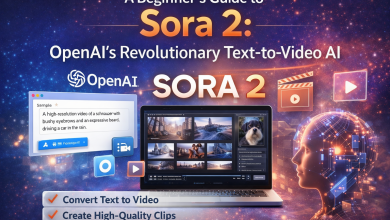
I’ve spent way too much money on SEO tools over the years. Ahrefs, Semrush, Surfer, Jaspe… you name it, I’ve probably paid for a subscription. And honestly? Most of them do what they claim to do. They’re not scams or anything.
But here’s what’s been bugging me: almost all of them focus on the wrong thing.
They help you analyze keywords, audit your site, optimize blog posts, track rankings—all useful stuff. But at the end of the day, they’re helping you create content that might rank and might convert. There’s a lot of hoping involved
SeoPage.ai takes a different approach, and after testing it against the tools I’ve been using for years, I think it’s actually solving a problem that most SEO tools completely ignore. Let me break down what I mean.
What Traditional SEO Tools Actually Do
Before we get into comparisons, let’s be clear about what the popular tools focus on.
Ahrefs and Semrush are amazing for research. They tell you what keywords to target, who’s ranking for what, how many backlinks you’d need, what your competitors are doing. They’re like having a massive database of SEO intelligence at your fingertips.
The problem? They stop at analysis. They tell you what to do, but they don’t actually do anything. You still need to write the content, build the pages, do the optimization yourself.
Jasper and Copy.ai generate content using AI. You give them prompts, they write blog posts, marketing copy, whatever. They’re fast, they’re pretty good at sounding human, and they can help you produce content at scale.
The problem? They’re generic writing tools. They don’t understand SEO strategy. They’ll write you a 2,000-word blog post about literally anything, but whether it ranks or converts is kind of a coin flip.
Surfer and Clearscope optimize content for search. They analyze top-ranking pages and tell you what to include in your content—which keywords, how many times, what structure to use.
The problem? They’re still focused on blog content. Long-form articles. Educational stuff. They’re not built for the pages that actually drive conversions in competitive markets.
See the pattern? Most tools are either stuck in analysis mode or they’re helping you create generic content. None of them are focused on building the specific pages that capture high-intent traffic and actually convert.
What SeoPage.ai Does Differently
Here’s where things get interesting. SeoPage.ai doesn’t try to be another keyword research tool or another AI writer. It has one specific job: build conversion-focused SEO pages at scale.
We’re talking about:
- Alternative pages (like “Best Asana Alternatives”)
- Comparison pages (“Notion vs Evernote”)
- Solution-focused landing pages
- FAQ pages targeting commercial searches
- Testimonial pages that rank for review queries
These aren’t blog posts. They’re not informational content. They’re pages that capture people who are actively looking to switch tools or evaluate options right now. High-intent, bottom-of-funnel searches.
And here’s the kicker—it builds them automatically. You don’t write them manually. You don’t even need to outline them. The AI analyzes your product, figures out your competitors, understands your positioning, and generates complete pages ready to publish.
Each page includes optimized content structure, proper headings, internal linking, images, citations—everything following Google’s E-E-A-T guidelines. It’s not just generating text; it’s building strategic pages designed to rank and convert.
The Real Comparison: What Each Tool Actually Solves
Let me compare SeoPage.ai against the major players based on what they actually help you accomplish.
SeoPage.ai vs Ahrefs
What Ahrefs does well: Keyword research, competitor analysis, backlink analysis, rank tracking. If you need data about what’s happening in your niche, Ahrefs is basically the gold standard.
What Ahrefs doesn’t do: Actually create anything. It’s pure research and monitoring. You still need to take all that data and turn it into pages yourself.
What SeoPage.ai does differently: It’s execution-focused. Instead of telling you that you should build alternative pages for your top 20 competitors, it builds them for you. Automatically. In minutes, not weeks.
When to use Ahrefs: When you need deep competitive research or comprehensive backlink analysis. It’s still the best tool for understanding your SEO landscape.
When to use SeoPage.ai: When you actually need to build conversion-focused pages at scale. It does the work Ahrefs identifies but doesn’t complete.
They’re honestly complementary. Use Ahrefs to find opportunities, use SeoPage.ai to execute on them quickly.
SeoPage.ai vs Jasper
What Jasper does well: Generates content fast. Blog posts, marketing copy, product descriptions—it can write pretty much anything. The output quality is decent and it saves time compared to writing everything manually.
What Jasper doesn’t do: Understand strategic SEO. It’s a general-purpose writing tool. You can ask it to write an alternative page, but it won’t understand the structure that actually converts or the positioning that makes sense for your specific product.
What SeoPage.ai does differently: It’s purpose-built for SEO conversion pages. It understands how alternative pages should be structured, what comparison pages need to include, how to position your product against competitors. The output isn’t just decent writing—it’s strategically structured pages designed to rank and convert.
When to use Jasper: When you need blog content, social media posts, ad copy, or other general marketing content. It’s flexible and can write about anything.
When to use SeoPage.ai: When you need alternative pages, comparison pages, or solution landing pages that follow proven structures and actually drive conversions. It’s specialized for this exact use case.
Jasper is a Swiss Army knife. SeoPage.ai is a precision tool designed for one specific job—and it does that job way better.
SeoPage.ai vs Surfer SEO
What Surfer does well: Content optimization based on SERP analysis. It tells you exactly what to include in your content to match top-ranking pages. The content editor is super helpful for optimizing as you write.
What Surfer doesn’t do: Create strategic pages. It helps optimize blog content, but it’s not designed for building alternative pages or comparison content. You’re still creating everything from scratch.
What SeoPage.ai does differently: It creates the pages, not just optimizes them. And more importantly, it focuses on conversion pages rather than informational blog content. Different use case entirely.
When to use Surfer: When you’re creating blog content and want to optimize it for search. It’s excellent for that specific purpose.
When to use SeoPage.ai: When you need to build out comprehensive coverage of alternative pages, comparison pages, or solution-focused content. It handles creation and optimization together.
Again, these tools solve different problems. Surfer optimizes the content you’re writing. SeoPage.ai builds the high-converting pages you probably aren’t creating enough of.
SeoPage.ai vs Semrush
What Semrush does well: It’s like Ahrefs—comprehensive research, competitive analysis, keyword opportunities, site audits. Really solid all-in-one platform for SEO intelligence.
What Semrush doesn’t do: Execution. It’s another research and analysis tool. Tells you what to do, doesn’t do it for you.
What SeoPage.ai does differently: Same as with Ahrefs—it’s about execution. Semrush might tell you there’s opportunity in “[competitor] alternatives” keywords. SeoPage.ai builds those pages.
When to use Semrush: For comprehensive SEO research, competitive intelligence, and monitoring. It’s a powerful platform if you need the full data picture.
When to use SeoPage.ai: When you need to act on the opportunities Semrush identifies. It’s the execution layer.
You can absolutely use both. Semrush for strategy and research, SeoPage.ai for fast implementation of high-intent pages.
Why This Matters for SaaS Companies
Here’s the thing—if you’re running a SaaS company, you probably don’t have unlimited resources. You can’t hire a team of 10 content writers. You can’t manually create hundreds of alternative pages and comparison pages.
But your competitors with bigger teams and bigger budgets? They can. And they’re probably ranking for “[your product] alternatives” right now, capturing people actively looking to switch from you.
This is especially critical in B2B SaaS where the buyer journey is complex and involves multiple stakeholders. You need comprehensive content coverage across different stages, but building it all manually is unrealistic for most teams.
Traditional SEO tools don’t solve this problem. They give you data and maybe help you write blog posts. But they don’t help you build the strategic pages that capture high-intent commercial traffic.
That’s where SeoPage.ai actually shines. It lets you compete with bigger companies by automating the creation of pages that usually take forever to build manually.
Let’s say you have 15 major competitors. Building alternative pages manually:
- Research each competitor: 2 hours per competitor = 30 hours
- Write optimized content: 4 hours per page = 60 hours
- Design and format: 1 hour per page = 15 hours
- Internal linking and optimization: 1 hour per page = 15 hours
Total: 120 hours of work. That’s three full weeks for one person.
With SeoPage.ai:
- Input your domain
- Let AI analyze your market
- Review and publish pages
- Total: 5-10 hours including review time
The time savings are insane. But it’s not just about speed—it’s about actually being able to do comprehensive coverage that would be prohibitively expensive otherwise.
What About Quality?
Okay, so it’s fast. But is the output actually good?
I tested this extensively because I was skeptical. AI-generated content can be hit-or-miss. Sometimes it sounds great but says nothing useful. Sometimes it just makes stuff up.
Here’s what I found with SeoPage.ai:
The structure is solid. Every alternative page follows a logical flow—why people look for alternatives, clear comparisons, specific use cases, honest positioning. It’s not generic; it’s following a framework that actually works for conversion.
The information is accurate. I was worried it would hallucinate features or make up competitor information. But it pulls from real data about competitors and positions your product based on actual differentiators.
The writing is clear. Not flowery or overly corporate. Just clear, direct writing that explains things without fluff.
Does it need editing? Yeah, usually. You’ll want to adjust tone to match your brand voice exactly. Sometimes it makes assumptions about your product you need to correct. But we’re talking 20-30 minutes of editing per page, not complete rewrites.
Compare that to the alternatives:
- Hiring writers: Quality varies wildly, expensive, slow
- Generic AI tools: Need heavy prompting and editing, structure often wrong
- Manual creation: Time-consuming, hard to maintain consistency
SeoPage.ai hits a sweet spot of “good enough to publish with light editing” while being fast and consistent.
The Honest Limitations
Let’s be real about what this tool isn’t good for, because nothing’s perfect.
It’s not for blog content. If you want long-form educational articles or thought leadership pieces, use Jasper or write them yourself. SeoPage.ai is specifically for conversion pages.
It’s not for keyword research. You still need tools like Ahrefs or Semrush to identify which competitors to target and which keywords to pursue. SeoPage.ai executes strategy; it doesn’t define it.
It’s not for technical SEO. You still need to monitor site health, fix crawl errors, optimize Core Web Vitals. Use tools like Screaming Frog or Screpy for that.
Brand voice needs tweaking. The output is professional and clear, but if you have a very specific brand voice (super casual, highly technical, whatever), you’ll need to edit for tone.
So it’s not replacing your entire SEO stack. It’s solving one specific problem—creating high-intent conversion pages at scale—that other tools don’t address.
Who Should Actually Use This
Based on my testing, SeoPage.ai makes sense for:
SaaS companies in competitive markets. You need alternative pages for every major competitor. Building them manually is a nightmare. This makes it manageable.
Agencies managing multiple clients. Being able to quickly build conversion pages for different clients without hiring more writers is huge for margins.
Small teams with limited resources. You can’t compete with bigger companies’ content volume, but you can compete on strategic page coverage with the right automation.
Anyone doing competitive SEO. If you’re targeting “[competitor] alternative” keywords systematically, you need lots of pages. This is the fastest way to build them.
Who shouldn’t use this?
Content-first brands. If your strategy is all about publishing amazing blog content and building authority through thought leadership, this probably isn’t your focus.
Companies with unlimited writing resources. If you’ve got 10 full-time writers and they can create these pages manually while maintaining quality, maybe you don’t need automation. (But honestly, why not free them up for higher-value work?)
The Bottom Line
After testing SeoPage.ai against the traditional tools I’ve been using for years, here’s my take:
It’s not trying to replace Ahrefs, Semrush, Surfer, or Jasper. It’s solving a different problem that those tools don’t address—building conversion-focused pages at scale.
Most SEO tools are stuck in research mode or generic content creation. They help with parts of the process but don’t actually execute on the high-value opportunities they identify.
SeoPage.ai is execution-focused. It builds the pages that capture high-intent traffic and drive conversions. The pages that most companies know they should have but never get around to building comprehensively.
Is it perfect? No. You’ll need to edit output. You still need other tools for research and monitoring. It’s not a complete SEO solution in a box.
But for its specific job—creating alternative pages, comparison pages, and solution-focused content at scale—it’s the best option I’ve found. Nothing else comes close for this particular use case.
And honestly? That specialization is what makes it valuable. It does one thing really well instead of trying to do everything mediocrely.
If you’re spending months manually creating alternative pages, or if you’re not creating them at all because it’s too time-consuming, this tool is worth checking out. It won’t replace your entire SEO stack, but it’ll handle the conversion page piece way better than anything else out there.
The traditional tools are still great at what they do. SeoPage.ai just fills a gap they weren’t designed to address.




